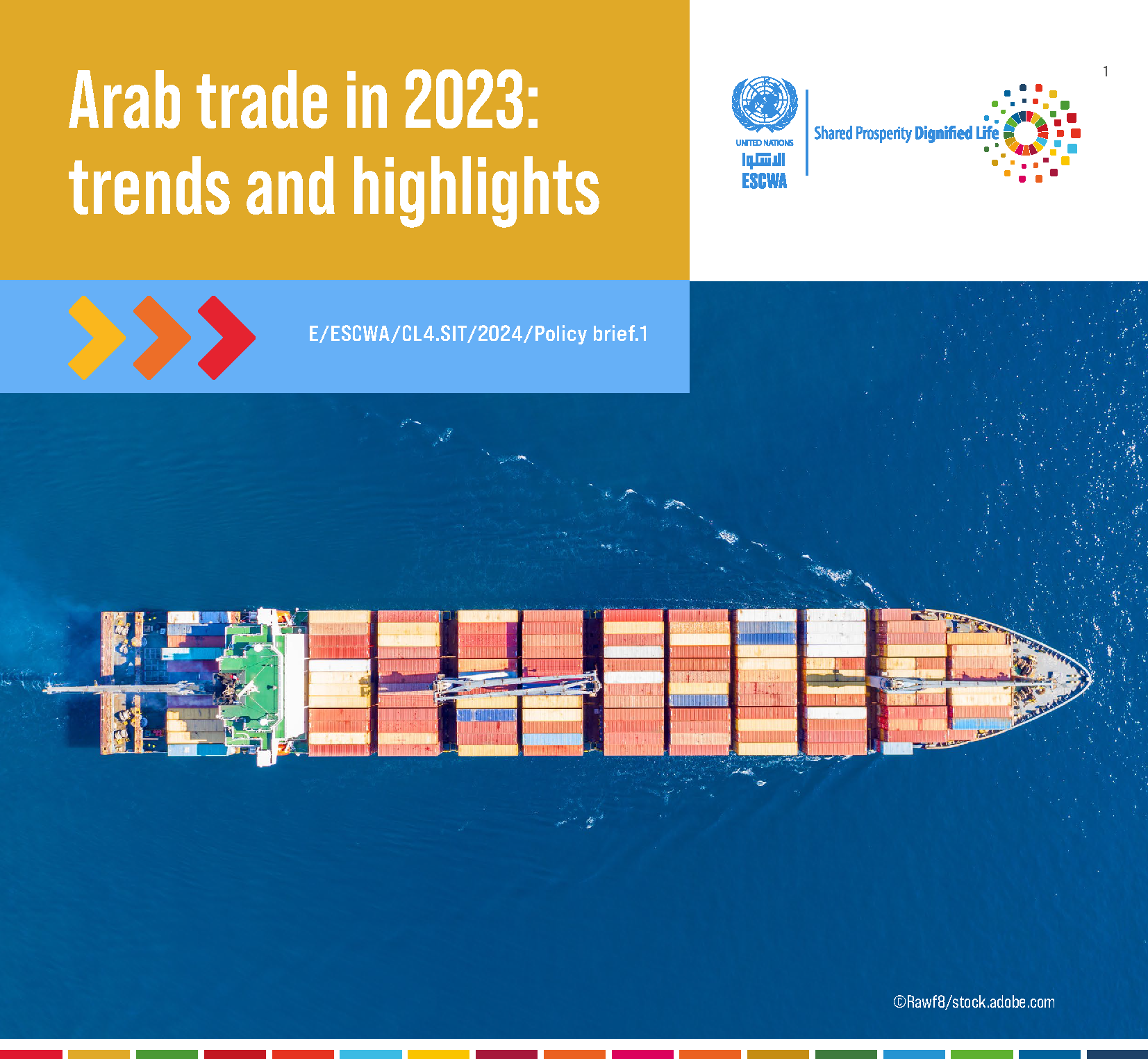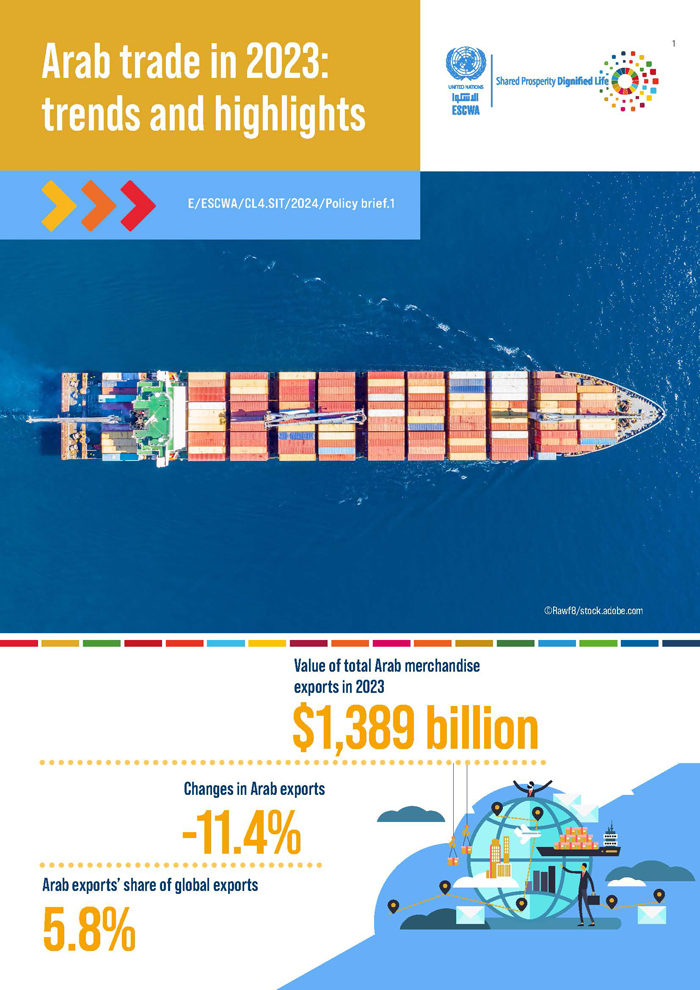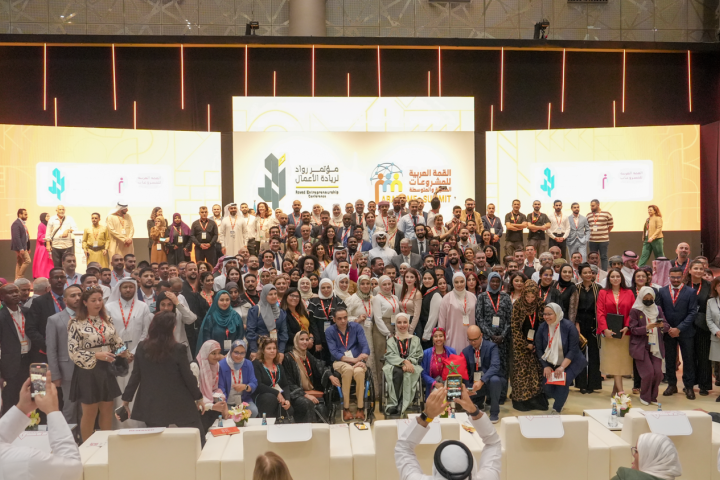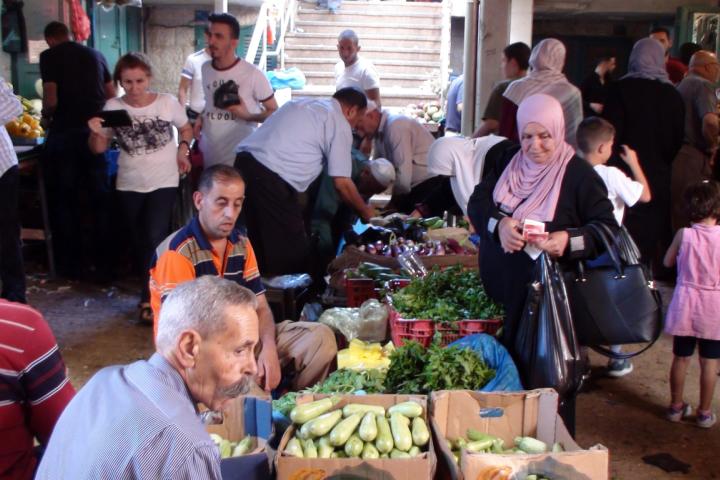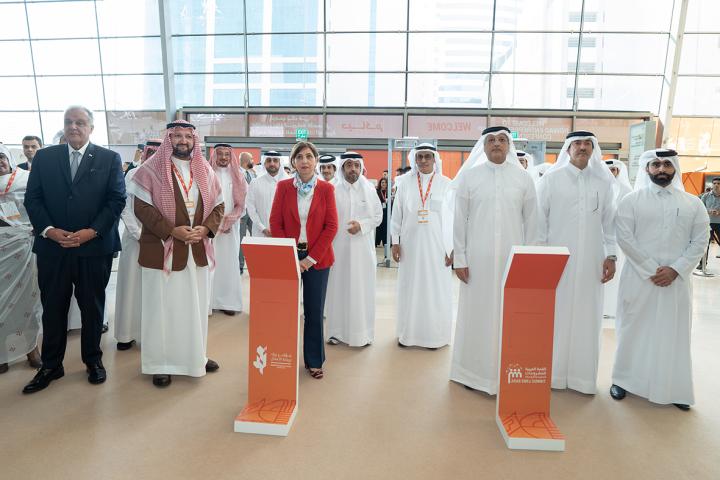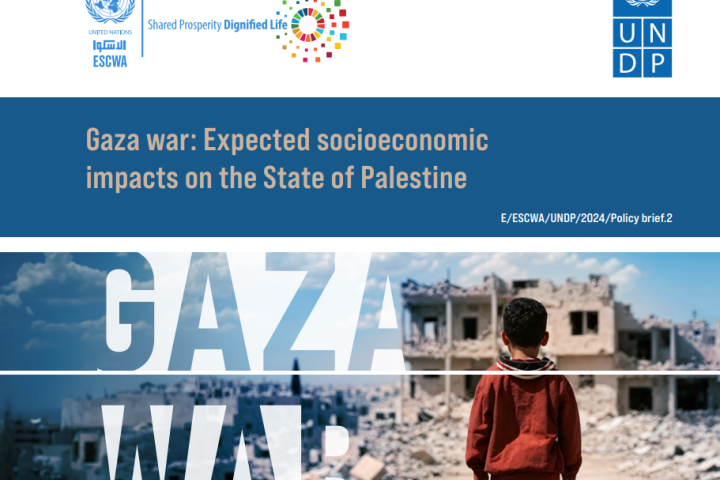Beirut, 13 September 2024--The United Nations Economic and Social Commission for Western Asia (ESCWA) has released a new report titled "Arab Trade in 2023: Trends and Highlights," analysing significant trends, challenges, and opportunities for the region's trade sector. The report highlights a 11.5% decline in the value of total Arab merchandise exports, which amounted to $1.4 trillion in 2023, and underscores the urgent need for enhanced trade strategies across the Arab region.
Market Concentration and Export Diversity
A major theme of the report is the vulnerability of many Arab countries due to their overreliance on a limited range of export products and a narrow set of export markets. This market concentration poses significant risks, making economies more susceptible to global market fluctuations.
”It is necessary for countries to adopt trade promotion strategies aimed at diversifying both their export portfolios and destination markets,” said Majed Hamoudeh, lead author of the report. “Broadening the range of products and exploring new market frontiers will be crucial in ensuring long-term trade resilience,” he added.
Expanding Intra-Arab Trade
The report also sheds light on the growing importance of intra-regional trade, which plays a pivotal role in supporting key economic sectors. For certain domestic industries, intra-arab exports account for over 75% of their market. The report calls for an expansion of the Greater Arab Free Trade Area (GAFTA), suggesting that extending its reach could facilitate greater market access and further stimulate regional trade integration. According to Hamoudeh, "this would bolster economic interdependence and strengthen the region’s trade infrastructure.”
Food Security a Pressing Concern
The report also identifies food security as an enduring challenge for the Arab region. It notes the importance of incentivizing local farmers and promoting the cultivation of essential crops to mitigate heavy reliance on imports. ”Governments are encouraged to diversify import sources to stabilize food supplies,” Hamoudeh underscored. “This strategy will be vital to securing long-term food stability in a region increasingly affected by climatic and geopolitical pressures,” he stressed.
Globalization and Green Technologies: Opportunities Ahead
Despite the challenges the sector is facing in the region, the report highlights globalization of manufacturing as a significant opportunity for Arab economies, particularly in emerging sectors like green technology. Strategic international partnerships could unlock access to advanced technologies such as electric vehicles, next-generation batteries, and solar energy equipment. By aligning with global manufacturing trends, Arab countries have the potential to strengthen their competitive edge and transition towards more sustainable economic models.
The report’s findings finally underscore the importance of forward-thinking trade policies and regional cooperation to address the existing challenges while capitalizing on future opportunities, while stressing the need to enhance trade resilience to maintain competitiveness in an evolving global marketplace.
***
About ESCWA
One of five United Nations regional commissions, ESCWA supports inclusive and sustainable economic and social development in Arab States, and works on enhancing regional integration.
For more information:
- Ms. Rania Harb, Public Information Assistant, +961-70-008-879; email: harb1@un.org
